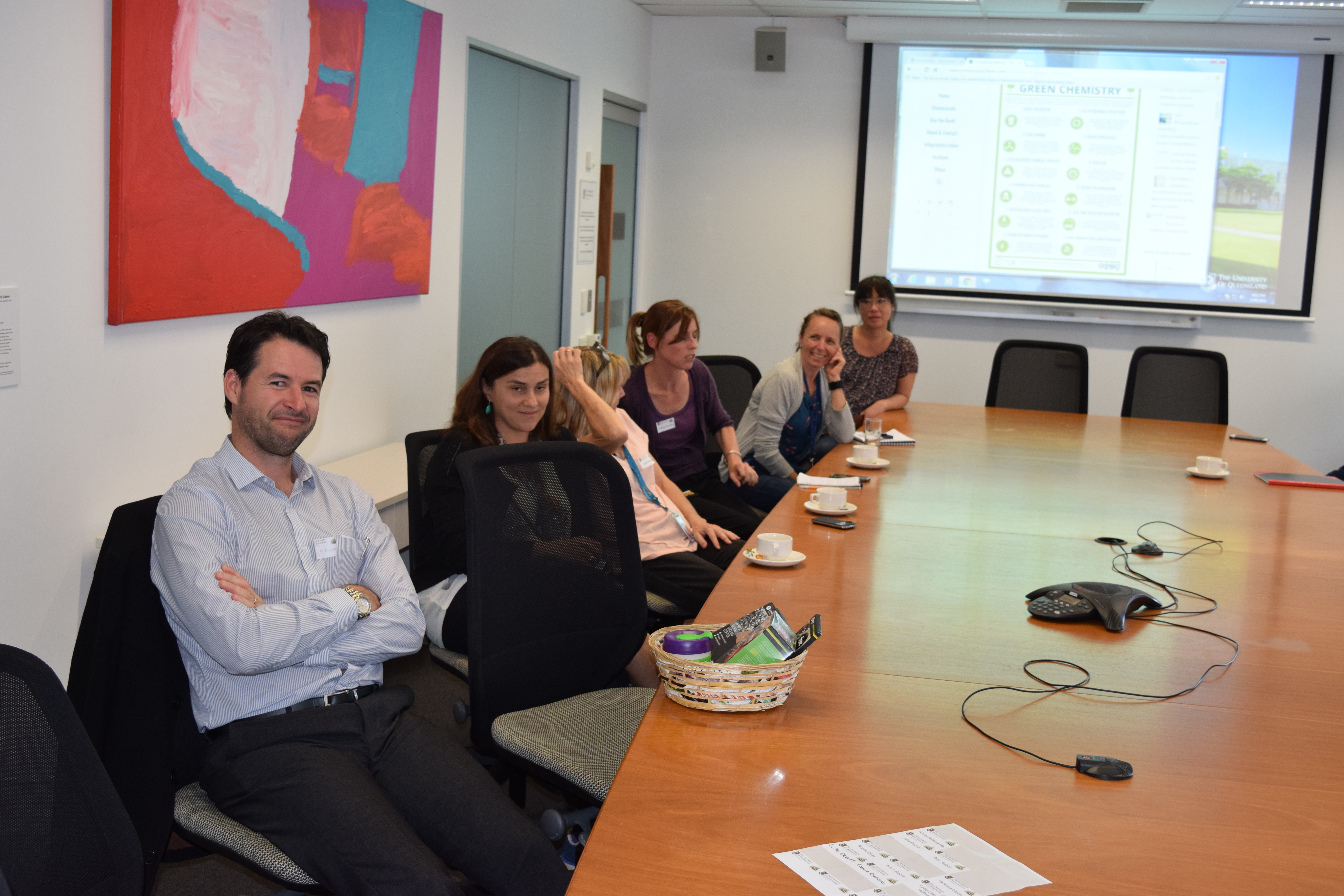 What role does green chemistry play in sustainability? This question shaped September’s Green Labs Update Session. The innovative field of green chemistry covers the design of chemical products and processes that reduce or eliminate the use or generation of hazardous substances, and has significant implications for future sustainability solutions.
What role does green chemistry play in sustainability? This question shaped September’s Green Labs Update Session. The innovative field of green chemistry covers the design of chemical products and processes that reduce or eliminate the use or generation of hazardous substances, and has significant implications for future sustainability solutions.
The session featured two guest speakers: Dr Craig Williams, Associate Professor in Organic Chemistry at the School of Chemistry and Molecular Sciences, whose research concentrates on strategies for synthesising complex natural products and designing and discovering novel biologically active molecules for use as medicines; and Dr Bronwyn Laycock, Senior Lecturer at the School of Chemical Engineering, whose current projects include biopolymer research, carbon nanofibre production and peptide-based conducting nanowires.
Dr Williams and Dr Laycock offered a number of valuable suggestions for implementing green chemistry in the lab, and explained the field’s 12 principles, which underscore its versatility and value in the context of sustainability:
- Prevent waste
- Maximise atom economy
- Design less hazardous chemical syntheses
- Design safer chemicals and products
- Use safer solvents and reaction conditions
- Increase energy efficiency
- Use renewable feedstocks
- Avoid chemical derivatives
- Use catalysts, not stoichiometric reagents
- Design chemicals and products to degrade after use
- Analyse in real time to prevent pollution
- Minimise the potential for accidents.
Audience questions after the session prompted some interesting discussion, and included the subject of biodegradable plastic bag alternatives—although many of us might assume that these are better for the environment, they are much flimsier and weaker than their plastic counterparts, and it’s important that the starch used to make them isn’t diverted from being a potential food source.
Other issues raised included how to recycle surfactants, the evolution of engineering materials and the push to find a universal solvent (while some suggested ethanol, which is plant derived, the consensus was that a universal solvent doesn’t exist).
We hope that this session helped let Green Lab representatives know how they can maximise their resources and minimise their waste in the laboratory. Staying informed is key—in the words of Dr Williams, ‘A day in the library is better than a week in the lab’.



